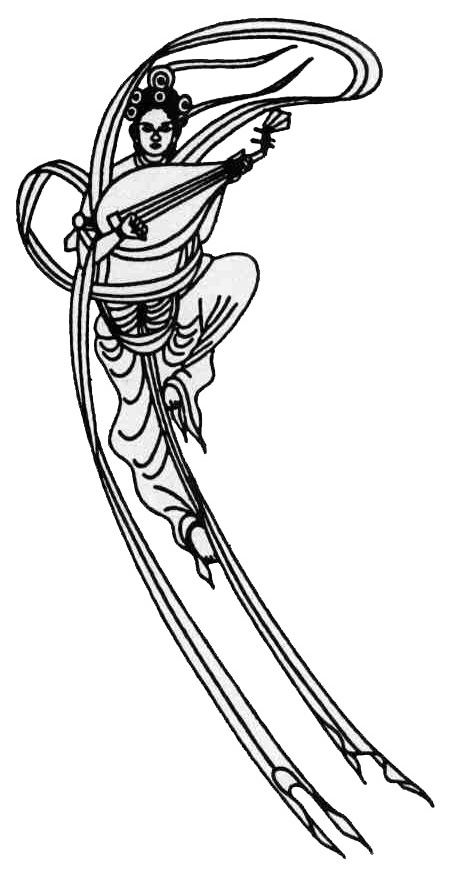| ARTICLE ONE: NAME OF THE SOCIETY |
| - |
The Society for Asian Music (hereafter the Society). |
|
| |
| ARTICLE TWO: OBJECTIVES OF THE SOCIETY |
| - |
The advancement of research and study of music and associated performing arts of Asia or of Asian origin. The objectives are set forth in the Society’s Certification of Incorporation (New York State). |
|
| |
| ARTICLE THREE: COMPOSITION OF THE SOCIETY |
| - |
All members as defined in the By-Laws. |
|
| |
| ARTICLE FOUR: BOARD OF DIRECTORS |
| - |
Members of the Board of Directors (hereafter the Board) shall be members of the Society. |
| - |
Board members shall be nominated by the Nominating Committee and elected by the membership. The Board shall consist of at least ten members. |
| - |
The responsibilities of the Board shall be: |
| |
| - |
To manage the Society’s affairs |
| - |
To determine the policies of the Society |
| - |
To nominate officers |
| - |
To develop an annual budget for the Society’s activities. |
|
| - |
The Board shall include the following: the Editor, the Book Review Editor, the Recording Review Editor, the Website Editor, and at least one member of the Editorial Advisory Board of the journal, Asian Music. |
| - |
Terms: 5 years (with the possibility of renewal). |
|
| |
| ARTICLE FIVE: OFFICERS |
| - |
The four Officers of the Society shall be drawn from within the seated Board. |
| - |
Their duties shall be: |
| |
| - |
President: to organize and preside over meetings, plan agenda, oversee general operations, write annual reports, devise strategic plans for the development of the Society. |
| - |
Vice-president: to preside over meetings and oversee general operations in the absence of the president; be in charge of membership recruitment; oversee grants and awards procedures. |
| - |
Secretary: to take minutes during meetings, summarize email discussions, submit written minutes to the Board, maintain a list of members of the Board and Editorial Advisory Board; maintain current membership list. |
| - |
Treasurer: to have custody of the funds of the Society; to present annual report. |
|
| - |
Terms: 3 years (with the possibility of renewal for one term). |
|
| |
| ARTICLE SIX: STANDING COMMITTEES |
| - |
The Board shall elect the chairs of all standing committees. |
| - |
The President is an ex-officio member of all committees. |
| - |
The Standing Committees are: |
| |
| - |
Program and publicity |
| - |
Editorial |
| - |
Membership |
| - |
Budget |
| - |
Liaison to other professional organizations. |
|
|
| |
| ARTICLE SEVEN: THE JOURNAL |
| - |
The official publication of the Society is the journal Asian Music. |
| - |
An Editorial Advisory Board consisting of scholars in the several areas of the study of Asian music shall be appointed by the Board of the Society. |
| - |
Terms of the Editorial Advisory Board: 5 years (with the possibility of renewal). |
|
| |
| ARTICLE EIGHT: THE ANNUAL MEETING OF THE BOARD AND OF THE SOCIETY |
| - |
The Society is an official ancillary organization of the Society for Ethnomusicology, and thus the Annual Meeting of the Board and annual meeting of the Society’s membership (hereafter the General Meeting) shall take place each year during the annual meeting of the Society for Ethnomusicology, unless otherwise arranged by the Board. |
| - |
The business and fiscal year of the Society ends on 30 June. |
|
| |
| ARTICLE NINE: AMENDMENTS |
| - |
Amendments to the Constitution and By-Laws of the Society can be proposed by any member if such suggestions are endorsed in writing by fifty members or ten percent of the membership of the Society (whichever is the smaller number) and submitted to the Secretary. |
| - |
Any amendments so proposed must be adopted by a two-thirds majority of the voting members of the Society. |
|
| |
| ARTICLE TEN: DISSOLUTION |
| - |
In the event of the dissolution of the Society, any assets remaining shall be disposed
of by the Board. |
|
| |
| BY-LAWS |
| |
| To ARTICLE THREE: COMPOSITION |
| 1. |
The Society shall have four classes of members: Individual, Student, Life, and Institutional. |
| 2. |
The Board shall review the annual dues for all classes of membership periodically (at least every three years) and make adjustments deemed necessary or advisable in view of the finances of the Society and its journal, Asian Music. |
| 3. |
The Board shall have the power to revoke a membership in any class except Life membership. |
| 4. |
Dues of Members shall be payable to the Society for Asian Music or to the publishing house of the journal Asian Music (as of the year 2009, the University of Texas Press). Both types of remittances of dues shall be sent to the publishing house for the journal and a list of current Members shall be maintained by that publishing house and made available to the Board at any time upon its request. |
| 5. |
Dues of Members shall be payable by January of each year. Members who are in default of dues after 15 April of any year shall be listed as delinquent. Delinquent Members shall receive neither notices of meetings nor publications until they are restored to good standing by payment of their current dues. Dues of new Members applying as of 5 October of any year may, if desired, be credited to the following year. |
| 6. |
All Members in good standing shall: a) have the right to vote; b) be eligible to hold elective positions in the Society; c) have the right to nominate candidates for elective positions by petition; d) have the right to propose amendments to the Constitution and By-Laws by petition (see Article Nine of the Constitution). |
| 7. |
The rights and privileges stated above apply to all membership categories except as follows: a) Life Members shall make a single payment to the Society, and they shall receive gratis copies of all publications of the Society; b) Student Members may remain in this membership category as long as they can show full-time student status; c) Institutional subscriptions to the journal do not qualify for membership in the Society. |
|
| |
| To ARTICLE FOUR: BOARD OF DIRECTORS |
| 1. |
Notice of Meetings of the Board shall be sent by the President at least ten days in advance. |
| 2. |
At a Meeting of the Board, a quorum shall consist of one half of the current seated Board members plus one. |
| 3. |
The President and Secretary jointly shall be empowered to act in emergencies. Such action shall be subject to the earliest possible approval by the Board. Such agreement can be effected by means of personally identifiable email communication by a majority of currently seated individual board members. |
| 4. |
The President, in consultation with the currently seated Board, shall appoint a Nominating Committee to fill vacancies on the Board. This committee shall consist of four members of the seated Board, including the President, who shall serve as chair and secretary of the committee. |
| 5. |
Following the Nominating Committee’s deliberation and its nomination of candidates for the Board, the list of candidates shall be submitted to the Membership of the Society at the General Meeting of the Society (see Article Eight) for its approval. Approval of candidates for the Board shall be by a majority vote of Members attending the General Meeting. |
| 6. |
A Member’s name shall be placed in nomination at the General Meeting only upon the Nominating Committee’s receiving prior written (including email) consent from that Member. This consent given, the nominee shall be honor-bound not to withdraw and, if elected, to serve and to assume the full burden of the Office, including attendance at all Meetings of the Board. |
| 7. |
A Member can be removed from office only by the unanimous vote of all other Members of the Board, with no abstentions. All Members of the Board must participate in such a vote at a meeting of the Board, and votes may be cast by written (including email) proxy, as long as a quorum of the Board exists in person at the meeting of the Board where the vote takes place and any written proxies are in the Secretary’s hands at the time of that meeting. |
|
| |
| To ARTICLE FIVE: OFFICERS |
| 1. |
All Officers shall be elected by a majority vote of the seated Board at the Annual Meeting of the Board. In order to reach a majority vote of the seated Board at its Annual Meeting, votes for officers may be cast by written (including email) proxy, as long as a quorum of the Board exists in person at the meeting of the Board where the vote takes place and any written proxies are in the Secretary’s hands at the time of that meeting. |
| 2. |
The Treasurer, as provided for in the annual budget or by regulations as may from time to time be prescribed by the Board, shall have the custody of the funds and securities of the Society and disbursements of its money. |
| 3. |
The Treasurer shall deposit the funds of the Society in such banks or trust companies as may from time to time be designated by the Board. The withdrawal of funds or securities shall be made only on the signature or signatures of one or more of the Directors, Officers, Members, or such employees of the Society as may be designated from time to time by the Board for such purpose. |
|
| |
| To ARTICLE SEVEN: THE JOURNAL |
| 1. |
The Editors of the journal Asian Music shall be appointed by the President, in consultation with, and following the approval of, a majority of the Board of Directors. |
| 2. |
The Editorial Advisory Board shall be appointed by the President in consultation with the Board of Directors. |
|
| |
| To ARTICLE EIGHT |
| 1. |
Whenever any notice is required to be given under the provisions of the laws of the State of New York or under the provision of the Certificate of Incorporation or By-Laws of the Corporation, a waiver thereof, in writing, signed by the person or persons entitled to notice, whether before or after the time stated therein, shall be deemed equivalent thereto. |
|
| |
| To ARTICLE NINE: AMENDMENTS |
| 1. |
Proposals to amend the Constitution or By-Laws along with comments such as may be made upon them by those submitting the proposals, shall be presented to the Secretary of the Society at least one month before the Annual Meeting of the Board. The Secretary shall submit the text of the amendment, along with the proposer’s comments as well as such comments as may be made upon them by Members of the Board, to the Members at the General Meeting of the Society. |
|
|
 |
Copyright
© 1969-2011 by the Society for Asian Music, Inc.
All rights reserved. ISSN0044-9202
This page revised:
22 June, 2011
|
|

